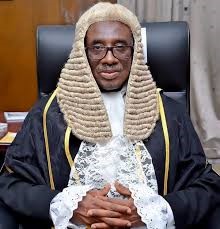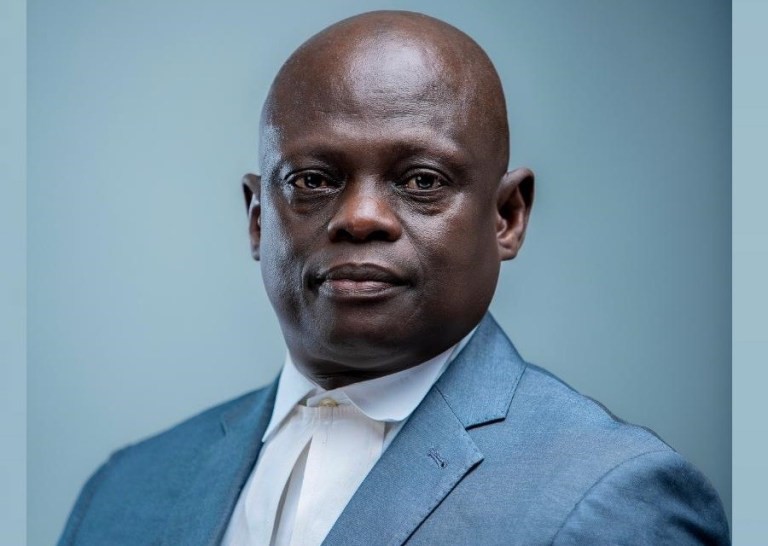By: Nicholas Bass
The civil suit that legislator Almamy Gibba and other pro-FGM organizations and individuals instituted against the State was on Monday adjourned by the Supreme Court to enable their lawyers to respond to the State lawyer’s argument.
Foni Kansala representative in the National Assembly Almamy Gibba alongside Yassin Fatty,Nano Jawla, Kadijatou Jallow, Concerned Citizens, Islamic Enlightenment Society, Women’s Association for Islamic Society Solidarity and Gambian Women Are Free to Choose Association filed a civil lawsuit at the Supreme Court, seeking a declaration that amendment of section 32 of the Women’s Act 2010 and insertion of the new sections 32A and 32B by the Women’s amendment Act No.11 of 2015, prohibiting the act of female circumcision are inconsistent with section 17 (1) and (2), 25(1) (c), and (2),32 and 33 (2) and (3)of the 1997 Constitution of The Gambia.
The plaintiffs, in their reliefs, stated that such was in contravention of section 4 of the 1997 Constitution, which according to them was ‘’ultra vires, null and void’’.
They are seeking an order from the court to strike out sections 32A and 32B of the Women’s Amendment Act No. 11 of 2015 from the Women’s Act of 2010 so that only section 32 of the original provision of the Women’s Act of 2010 will be maintained.
The plaintiffs are also seeking from the court a declaration that the act of the National Assembly in passing the Women’s amendment Act No.11 of 2015 was done in excess of legislative authority and, therefore, void and no effect and inconsistent with section 17 (1) and (2) ,25(1) (c),28 (1) and (2), 32 and 33(2) and (3) of 1997 Constitution.
However, when the matter was called yesterday, the State lawyer A. A Wakawa said that the reliefs of the plaintiffs were incompetent, adding that the court lacked the jurisdiction to hear and determine the matters, relating to the interpretation or enforcement of section 17 to 33 of the 1997 Constitution of The Gambia.
Lawyer Wakawa argued that the reliefs’ sought by the plaintiffs were anchored on section 4,5 and 127 (1) (b) of the 1997 Constitution, and section 5(1) (b) of the Supreme Court Act which, according to him, the plaintiffs’ case was not one of interpretation or enforcement of the provisions, which fell under chapter V of the Constitution.
Lawyer Wakawa further argued that the plaintiffs’ case was centred on the amendment of section 32 of the Women’s Act of 2010 and insertion of new sections 32A and 32B by the Women’s Amendment Act No. 11 of 2015, which prohibited the act of female circumcision which he claimed were inconsistent with sections 17 (1) and (2), 25 (1) (c), 28(1) and (2) ,32 and 33 (2) and (3) of the 1997 Constitution and ”therefore in contravention of section 4 of the Constitution of The Gambia”.
”Section 4 of the Constitution is clear when it states that this Constitution is the supreme Law of The Gambia and any other law found to be inconsistent with any provision of this Constitution shall, to the extent of the inconsistency, be void,” State lawyer Wakawa submitted.
The State’s argument brief, however, stated that in respect of section 5 of the Constitution, it is the empowering provision which gave the plaintiffs’ [applicants] the right to bring an action before the Supreme Court for a declaration of the rights they sought in the suit. He, however, stated that section 5 of the Constitution provides that ”a person who alleges that any Act [Law] of the National Assembly or anything done under the authority of an Act [Law] of the National Assembly or any act or omission of any person or authority is inconsistent with or is in contravention of a provision of this Constitution, may bring an action in a court of competent jurisdiction for a declaration to that effect”.
”Evidently, this is the bedrock of our case and certainly, it is not one seeking for interpretation or enforcement of fundamental rights,” Wakawa said.
Defense lawyer Lamin J. Darboe was in the court for the first time and he pleaded with the court for a short adjournment to enable him to respond to the State’s arguments and the matter was consequently adjourned.





